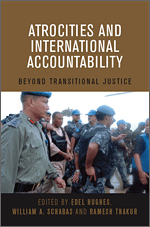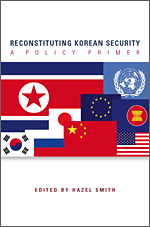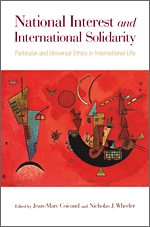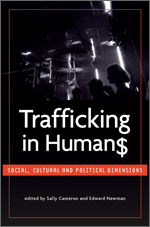ISSUE 47: SEPTEMBER-DECEMBER 2007
network of research and training centres/programmes
FRONT PAGE | ARCHIVE |
New from UNU Press
 |
Atrocities and International
Accountability:
Beyond Transitional Justice
Edited by William A. Schabas, Ramesh Thakur, and Edel Hughes
Rebuilding societies where conflict has been accompanied by gross and systematic violations of human rights is a process fraught with controversy.
Transitional
justice seeks to balance justice, truth, accountability, and peace and
stability. Although the appearance of impunity for past crimes undermines
confidence in new democratic structures and casts doubt upon commitments
to human rights, the need to consolidate peace sometimes makes national
and international authorities reluctant to confront suspected perpetrators
of human rights violations, especially when they are part of a peace
process. Experience in many regions of the world suggests a trade-off
between peace and justice.
However, there is a growing consensus that some form of justice and
accountability are integral to – rather than in tension with – peace
and stability. This book considers if we are truly going beyond the
'transitional justice' debate. It brings together eminent scholars and
practitioners with direct experience of some of the most challenging
contemporary cases of international justice, and illustrates that justice
and accountability remain complex ideals.
- William A. Schabas is Professor of Human Rights Law at National University of Ireland in Galway, and Director of the Irish Centre for Human Rights.
- Ramesh Thakur is Senior Vice-Rector of the United Nations University in Tokyo and an Assistant Secretary-General of the United Nations.
- Edel Hughes is a Ph.D. Candidate at the Irish Centre for Human Rights, National University of Ireland.
Reconstituting Korean Security
Edited by Hazel Smith
The classic national security concerns of
nuclear proliferation and the production, sale and use of weapons of mass
destruction cannot be addressed in the Korean peninsula without at the
same time considering the implications and interrelationship of what are
these days known as the human security issues of food, poverty and,
perhaps more controversially, freedom.
East Asia and the world are more dangerous with North Korea in possession
of nuclear weapons. However, a comprehensive security analysis identifies
many equally significant threats to regional security, such as the risk
from industrial and nuclear accidents and the potential for trans-border
crime arising from the lack of legal and productive avenues for economic
activity for North Korea's poverty-stricken citizens.
This book shows that in Korea, soft security issues are as important as hard security matters and that the latter cannot be understood, or its dilemmas unravelled, without a clear engagement with the former.
- Hazel Smith is Professor of International Relations at the University of Warwick, UK.
National Interest and International
Solidarity:
Particular and Universal Ethics in International Life
Edited by Jean-Marc Coicaud and Nicholas J. Wheeler
Taking as its point of departure the perennial tension between particular and universal ethics in international society, this book seeks to explore and understand the motivations of actors in different international contexts where national interests and solidarity concerns intersect.
Focusing on a range of regional cases, where it is not evident from a traditional national interest point of view why outside actors would choose to intervene, the book evaluates the respective weight of national interest and internationalist (solidarity) considerations.
Ultimately, while classical national interest considerations remain to this day a powerful motivation for power projection, the book shows how an enlightened conception of national interest can encompass solidarity concerns, and how such a balancing of the imperatives of both national interest and solidarity is the major challenge facing decision-makers.
- Jean-Marc Coicaud heads the United Nations University's Office at the United Nations in New York.
- Nicholas J. Wheeler is Professor of International Relations at the University of Wales, Aberystwyth.
Trafficking in Humans:
Social, Cultural and Political Dimensions
Edited by Sally Cameron and Edward Newman
This book seeks a deeper understanding of the social, economic and political contexts of human trafficking: the recruitment and transportation of human beings through deception and coercion for the purposes of exploitation.
Trafficking generally occurs from poorer to more prosperous countries and regions. However, it is not necessarily the poorest regions or communities which are most vulnerable to trafficking, and so there is a need to identify the factors which explain where and why vulnerability increases.
At the same time, modern forms of transportation and communication have aided the movement of people and also enabled transnational organized crime groups and trafficking rings to exploit vulnerable people for profit. The book includes contributions from experts with great experience of trafficking issues and it also gives a voice to 'critical' views which argue that trafficking challenges are inseparable from broader debates about human rights and migration.
- Sally Cameron is a consultant on governance and gender issues in Sydney, Australia, and a former Policy Analyst for the Australian Federation of AIDS Organisations.
- Edward
Newman is Programme Officer in the Peace and Governance Programme
at the United Nations University in Tokyo.
 HOW
TO ORDER
HOW
TO ORDER
© 2007 United Nations University


